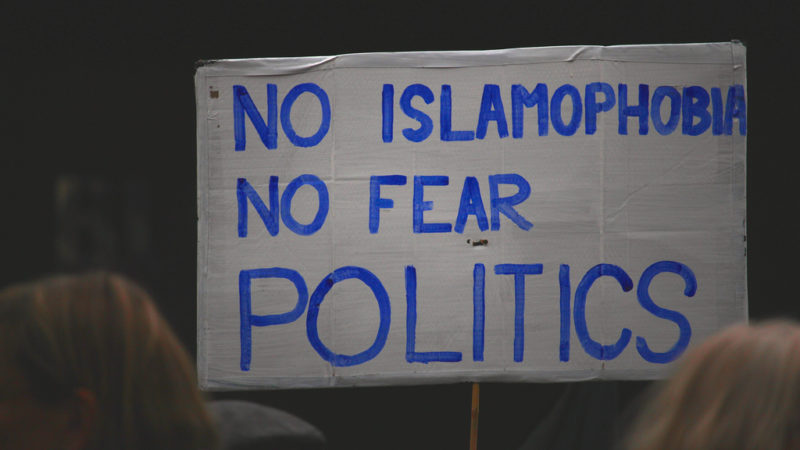A new guide details what to do if you are the victim of an anti-Semitic or Islamophobic attack, or if you witness one.

A hands-on guide for those affected by hate crime aims to give victims the confidence to come forward.
Produced by the Community Security Trust (CST), a charity that protects British Jews from anti-semitism, and Tell MAMA, a national campaign to tackle anti-Muslim hatred, the report is designed to help victims and witnesses navigate the criminal justice system.
It has been released in a bid to increase reporting of hate crimes, after a surge in incidents following terrorist attacks in London and Manchester in the spring.
Earlier this summer, Tell MAMA reported that a mosque is attacked once a week in the UK.
Iman Atta OBE, Director of Tell MAMA, said the organisation wanted it to be easier for people to “take charge, and feel confident when they report hate incidents”.
He said progress had already been made.
“We have seen a rise over the last five years in the reporting of anti-Muslim hatred.
Tell MAMA has been at the vanguard of supporting victims of anti-Muslim hatred, whilst collecting evidence and mapping, monitoring and measuring incidents across the United Kingdom….
We stand together with other communities in working to counter hatred, intolerance and bigotry.”
The document, which includes detailed information on the court system, and the rights of victims and witnesses, covers all types of hate crime, ranging from physical attacks to abuse on social media.
It comes after the Crown Prosecution Service (CPS) said on Tuesday that hate crimes committed on social media will be treated as seriously as offences committed in person under new guidelines.
Many victims and third parties still struggle to know how to respond when they experience or witness an attack, the report explains. Fear and confusion are believed to have contributed to a massive under-reporting of hate crime incidents.
Alison Saunders, Director of Public Prosecutions, said the CPS wanted communities and individuals to come forward and report offences “no matter how minor they may appear”.
She added:
“This guide is an important way of ensuring that victims can make informed decisions about the most appropriate course of action, taking account of their particular personal circumstances.
Hate crime divides communities and the CPS has an absolute commitment to bring perpetrators to justice and support victims and witnesses through the criminal justice system.”
Communities Secretary Sajid Javid said the government was also committed to backing those who did come forward. “It is vital that victims have the confidence to report crimes to the Police,” he said. “This guide is an example of how we can work together to stamp out hate crime and support victims in bringing their cases forward so that justice can be served”.
Would you know what to do if you witnessed or experienced hate crime? Why not share the guide to help raise awareness.
To reach hundreds of thousands of new readers we need to grow our donor base substantially.
That's why in 2024, we are seeking to generate 150 additional regular donors to support Left Foot Forward's work.
We still need another 117 people to donate to hit the target. You can help. Donate today.



